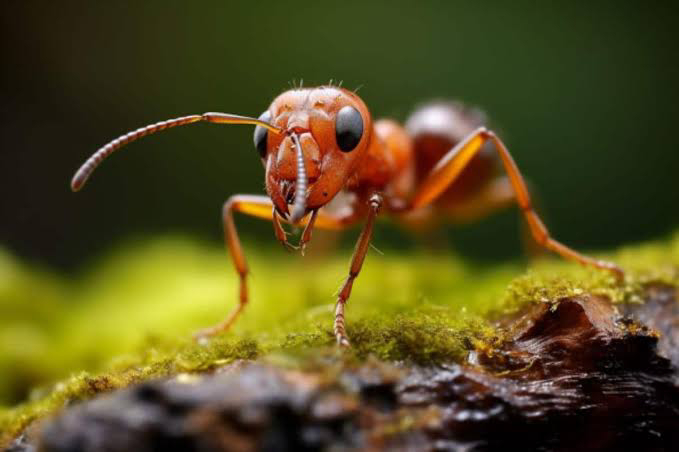Ants, the tiny titans of the insect world, wield an outsized influence on the ecosystems they inhabit. From the rainforests of the Amazon to the deserts of Africa, ants play multifaceted roles that are fundamental to the functioning and balance of natural environments. Through their complex social structures, diverse behaviors, and symbiotic relationships, ants shape ecosystems in profound ways, influencing everything from nutrient cycling to plant distribution and even the behavior of other organisms.
Ants are perhaps best known for their remarkable organizational abilities within their colonies. These social insects live in highly structured societies composed of various castes, each with specialized roles. At the heart of every ant colony lies the queen, the reproductive powerhouse responsible for laying eggs and perpetuating the colony's lineage. Surrounding her are legions of workers, sterile females tasked with foraging, nest maintenance, and caring for the brood. Some colonies also have soldiers, larger ants equipped with formidable mandibles or stingers, tasked with defending the colony from threats.
The division of labor within ant colonies allows them to efficiently exploit resources in their environment. Foraging parties of worker ants scour the landscape in search of food, communicating with their nestmates through chemical signals known as pheromones. These trails of pheromones serve as guides, leading ants to and from food sources and enabling them to coordinate their efforts effectively. Back at the nest, other workers tend to the queen and her offspring, ensuring the colony's continued growth and survival.
One of the most significant contributions of ants to ecosystem dynamics is their role as ecosystem engineers. Through their excavation activities, ants shape the physical structure of their surroundings, creating intricate networks of tunnels and chambers beneath the soil surface. These subterranean labyrinths provide shelter not only for the ants themselves but also for a multitude of other organisms, including other insects, spiders, and small mammals. By aerating the soil and facilitating water infiltration, ants improve soil quality and contribute to nutrient cycling, ultimately enhancing the productivity of the ecosystem.
Ants are also important agents of seed dispersal, a process vital for the regeneration and spread of plant species. Many plants have evolved specialized adaptations to attract ants, such as fleshy seed appendages rich in lipids or proteins. Ants collect these seeds and carry them back to their nests, where they may consume the nutritious appendages or discard the seeds in refuse piles. In doing so, ants transport seeds over considerable distances, aiding in the colonization of new habitats and contributing to the genetic diversity of plant populations.
In addition to their role as seed dispersers, ants are voracious predators, preying on a wide range of other insects and invertebrates. As efficient hunters, ants help control populations of pests, thereby reducing the damage inflicted on crops and other vegetation. In agricultural ecosystems, ants provide valuable natural pest control services, potentially reducing the need for synthetic pesticides and minimizing environmental impacts.
Beyond their direct interactions with plants and other animals, ants also engage in mutually beneficial relationships with a variety of other organisms. One notable example is their symbiotic partnership with certain species of aphids, small sap-feeding insects. Aphids excrete a sugary substance known as honeydew, which ants consume as a food source. In return, ants protect aphids from predators and parasites, even going so far as to move them to more favorable feeding locations. This mutually beneficial arrangement, known as mutualism, illustrates the intricate web of interactions that characterizes ecological communities.
Ants are also known to cultivate fungi for food in specialized chambers within their nests—a practice known as fungiculture. Certain ant species, such as leafcutter ants, harvest plant material to cultivate fungal gardens, which they then consume as a primary food source. These fungi are not only a source of nutrition for the ants but also play a crucial role in breaking down organic matter and recycling nutrients within the ecosystem. In this way, ants contribute to the decomposition process, facilitating the return of nutrients to the soil and supporting plant growth.
Despite their small size, ants can have significant impacts on the behavior and distribution of other organisms within their ecosystems. For example, the presence of ants can influence the foraging behavior of herbivores, deterring them from feeding on plants that are defended by ants. Similarly, the chemical cues produced by ants can affect the behavior of other insects, either attracting or repelling them depending on the context. These indirect effects of ants on the behavior of other organisms underscore the complex interconnections that characterize ecological systems.
In conclusion, ants are ecological powerhouses whose influence extends far beyond their diminutive size. Through their social organization, foraging behaviors, and symbiotic relationships, ants play essential roles in shaping the structure and function of ecosystems worldwide. From seed dispersal to nutrient cycling to pest control, ants contribute to a wide range of ecosystem processes that are critical for the health and sustainability of natural environments. As we continue to explore and appreciate the intricate complexities of the natural world, it is essential to recognize the invaluable contributions of ants and other often-overlooked organisms to the web of life on Earth.
Tags:
Learn






